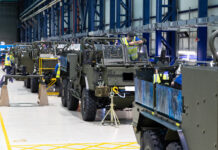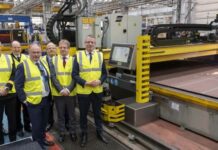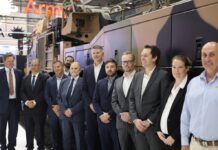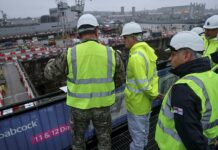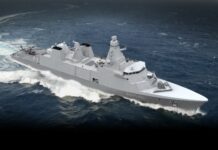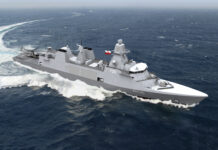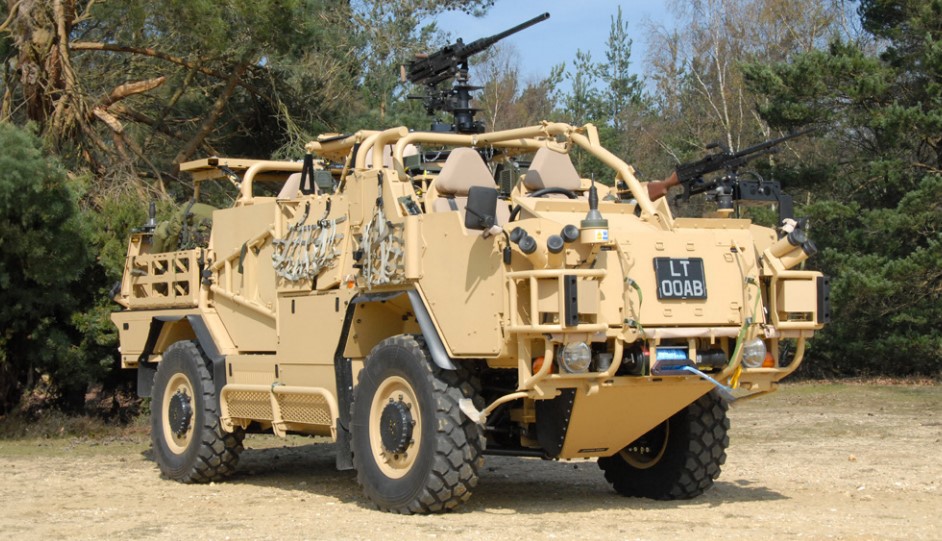
Supacat and Babcock launch production of Jackal 3 for British Army
Peter Felstead
Supacat and subcontractor Babcock officially launched production of 70 High Mobility Transporter (HMT) Jackal 3 vehicles for the British Army on 1 February 2024.
A special manufacturing facility at Babcock’s Devonport site has been developed for this purpose and will produce 62 of the vehicles, with the remaining eight to be built at Supacat’s manufacturing facilities in Dunkeswell. Production of the new vehicles is planned to be completed by the summer of 2024.
Supacat was awarded a GBP 90 million (EUR 105.4 million) contract in February 2023 to produce 70 HMTs for the British Army by the UK Ministry of Defence’s Defence Equipment & Support (DE&S) organisation. Although the initial order is for 70 vehicles, there are options for up to 240 to be procured.
The vehicles are being used to support British Army readiness by increasing its tactical fleet numbers while also backfilling to replace vehicles gifted to Ukraine.
The project is one of the first contracts to deliver on the UK’s Land Industrial Strategy. Close working relationships between Babcock, Supacat the British Army and the DE&S team have ensured that the operational and safety requirements of the vehicle are fully met.
In tribute to both the British Army and the Royal Navy, the new Devonport production facility has been named ‘The Raglan Building’ in recognition of the nearby Raglan Barracks, which supported British soldiers on their way to overseas operations in the 1800s.
The facility is future-proofed and is ready for subsequent build programmes. Transformational innovation and technology have been optimised throughout the production line and include the use of bespoke ‘Pulse’ software, which maximises efficiency during vehicle assembly. It is anticipated that the advantages of being located in the South Devon Freeport will benefit the future through-put of this production facility for years to come.
The Jackal 3 benefits from over a decade of development by Supacat for the UK and overseas customers since the last iteration of Jackal was delivered to the British Army. It has a number of enhancements to support operational requirements, including improved protection for the crew and an increased gross vehicle mass for greater load carrying.
“The Jackal 2 was a class leader off road. However, the new suspension in the Jackal 3 will deliver even better off-road performance,” the companies stated in a joint press release. “Whilst being procured as a 4×4 vehicle, the Jackal 3 can be readily transformed into a six-wheel drive vehicle which more than doubles its load-carrying capacity.”

Major General Darren Crook, Director for the Land Equipment Operating Centre at DE&S, was quoted as saying, “This Supacat and Babcock collaboration will deliver modern fighting vehicles for the British armed forces and our allies, whilst developing and maintaining key land defence engineering skills in a much-valued part of the southwest of England. It is tangible evidence of the British Army’s Land Industrial Strategy and our purpose for Defence: ‘to protect the nation and help it prosper.’”
Nick Ames, CEO of Supacat, said: “As an SME based in southwest England, it is an enormous privilege to have our product selected yet again by the British Army. The Jackal 3 is the product of 25 years of specific development and 45 years of corporate development. Every member of our staff takes enormous pride in the quality of the product that provides our soldiers with a leading-edge battle proven platform that they can rely on. That pride in quality also led us to our production partner for this project, Babcock. Our teams have worked, together with the MoD, tirelessly to a challenging timescale and with enabling technology, to support this procurement and we will continue to do so into the future to provide world class product to the British Army.”
Babcock CEO David Lockwood added, “At this time of global instability, the significance to the British Army of delivering the HMT Jackal 3 vehicle should not be understated. These Jackals will help keep the UK safe, whilst our technologically advanced production facility will support social value and economic prosperity in the region for years to come.”




